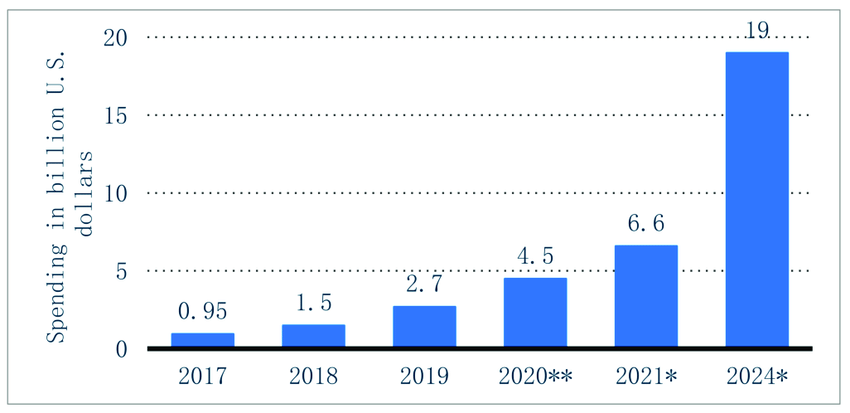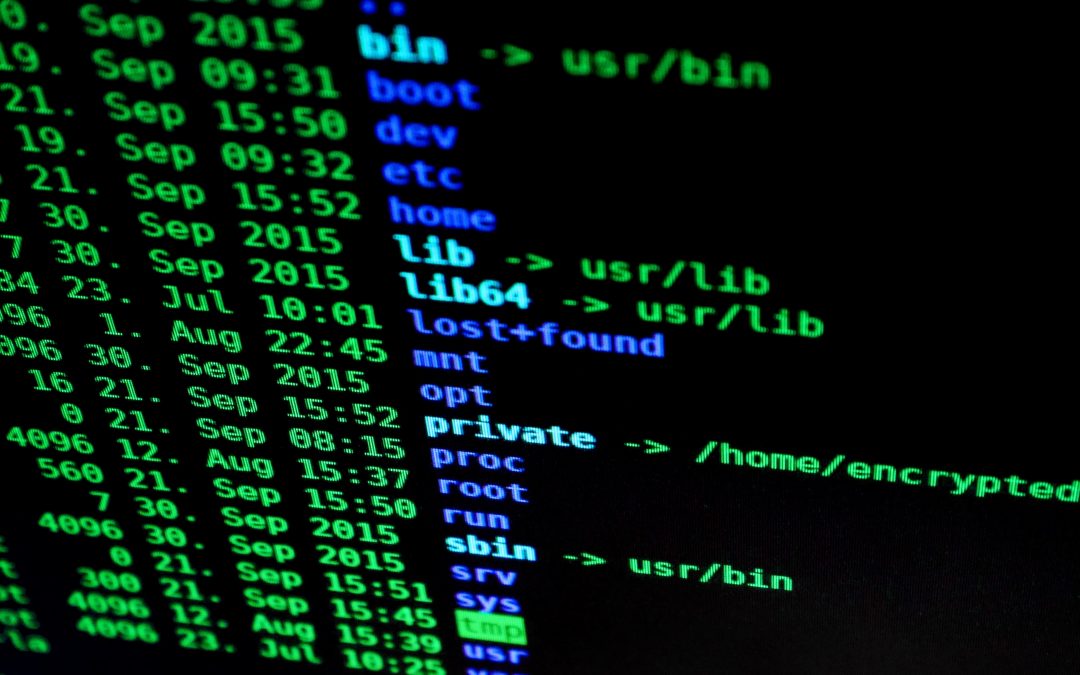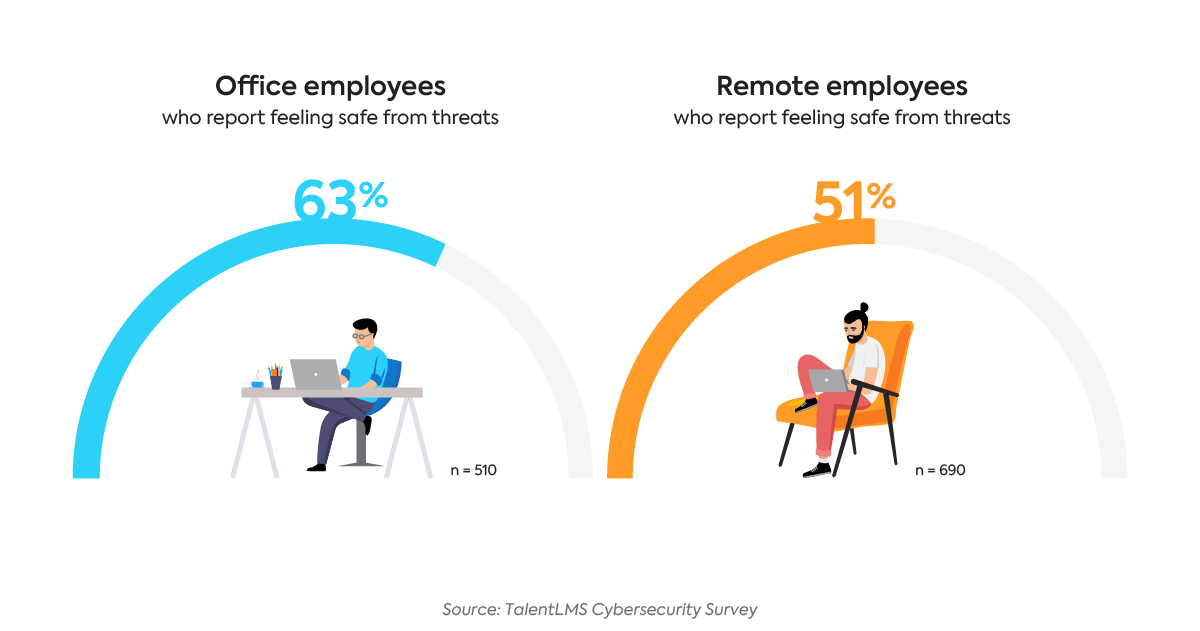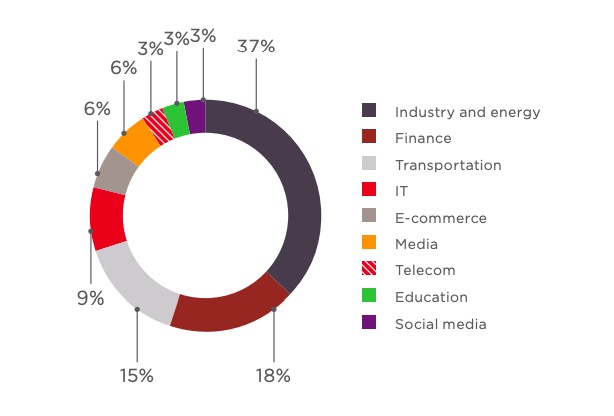
by Anika D | Jun 22, 2022 | Blockchain
Blockchain technology influences every sector with its hassle-free procedures, which are future-proof. Blockchain is everywhere, from tokening real estate to producing methods with less carbon footprint. Blockchain can boost GDP by $1.76 trillion by 2030 with such great numbers its application in the real world is noteworthy. So, let’s look at enterprise blockchain – Its evolution in real-world utility and use cases.
Intellectual Property Rights and Copyright Protection

Source
Blockchain technology allows tokenization through which any asset becomes accessible. One can trade it through blockchain technology which makes the process digital and totally on Non Fungible Tokens. Legal documents like the Non-Disclosure Agreement, tenant agreement, etc., are often regulated through printed papers. It ensures privacy and protection. Blockchain notarization is a powered-up process that avoids breaches as it has a sound security system.
Blockchain solves the environmental crisis as it will avoid all the hassle of paperwork and lead to a less carbon footprint. Furthermore, the assets will be tradeable due to blockchain technology. Also, one can access their accounts through A digital fingerprint.
In addition, preserving original work and going for copyrights is a lengthy process that requires time and lots of formalities. This expensive process can be revolutionized by blockchain technology. Some nations like China have set foot in privacy and copyright infringement cases through blockchain technology. It’s affordable, quick, and very convenient.
Token Economies for Digital Barter
Blockchain tokenization can help owners to regulate trade through tokens. After the pandemic, production and transport businesses have faced many hurdles. An example is the blockage of the Suez canal which affected 12 % of global trade.
While the assets do not move in physical geography, the ownership can be traded. It will reduce time, fasten up trading and avoid lots of security hassle. In addition, it’s a new form of digital barter through blockchain technology by which you can initiate the process with a few clicks.
Revenue Participation and Real Estate

Source
The real estate sector is the most productive sector ensuring good money anytime. However, most livable places in the world have high demands, and thus real estate is costly. But, fortunately tokenization through blockchain can speed up the process significantly. So you may or may not have to visit the site but can finalize the deal with blockchain technology.
Generally, the sale and purchase of property require a very long time. You can buy a property with a digital token. This revolutionizing real estate purchase through blockchain seems promising, but there are some hurdles. Moreover, blockchain requires international cooperation for its efficient work. So, all nations must trust and ease the rules for blockchain technology to use its full potential.
Wrapping Up
Blockchain seems quite promising, and many tech tycoons are working to make it robust with a high level of privacy. Luckily, you can make money from blockchain and indulge in money transactions through the method. Gradually, the tech will become more prominent and change the trading statistics of the world. Moreover, it will save lots of time and make the processes much easier.

by Anika D | Jun 17, 2022 | Emerging Technology
Cloud computing is a boon in enterprise technology as working on the cloud has decreased costs, the need to buy hard drives, and much more. In addition, storing, accessing, and managing data on the cloud is much easier. As a result, many cloud computing startups are experiencing success in this path. So, here are the top cloud computing startups of 2022.
Let’s have a look!
Amperity

Source
Amperity is a startup for the enterprise data platform that aims to alter siloed customer data into the cloud, which is great for customer experience. You will be surprised to know that worldwide spending on public cloud services is predicted to increase 20.4% in 2022 to total $494.7 billion, which is $410.9 billion more from 2021.
CEO Barry Padgett says that their enterprise customer data platform is setting benchmarks using AI to connect with the customers. In addition, it successfully launched the Amperity profile accelerator by building marketing cloud activations.
Aporia
Aporia is a full-stack, machine learning, and cloud-native platform. Its headquarters are in Tel Aviv, Israel, and Iran; Hanson is the current CEO. The startup has gained immense popularity in cloud computing as it allows data elements and machine learning professionals to assess, analyze and improve the ML and data strategies. Furthermore, being a complete cloud-native observability platform, it is a blessing for enterprises as best cloud practices have various advantages which reduce complicated tasks.
Iterative
The startup Iterative used unique technology to build and collaborate with cloud-native machine learning tools. Based in San Francisco, the CEO of the company is Dmitry Petrov. It creates famous open source tools like DVC and CML.
In addition, it builds enterprise tech like Studio to handle and operationalize ML models, datasets, and experiments. The company has integrations with cloud providers, including AWS, Azure, and Google Cloud. Also, it delivers reproducibility, governance, and automation across the ML lifecycle. The startup is backed by famous names like rue Ventures, Afore Capital, and 468 Capital.
Privacy

Source
The founders of Apache Ranger found Privacy, which provides a single platform for safeguarding sensitive data across multiple cloud services. That can be the Google platform, Dtabricks, etc. In addition, it’s a Software-as-a-Service (SaaS) data security and governance platform. It’s a great platform for securing and managing all these enticing data across various platforms.
Interestingly, Fortune 500 customers in various industries use Privacera to automate sensitive data. As cloud computing is shaping the healthcare industry, the leak of sensitive data can be harmful. The platform is regularly launching new versions to make the platform more robust, flexible, and successful.
Imply
Imply is a top solution for modern analytics applications. It was founded by the creator of Apache Druid and delivered a unique cloud database. It’s extremely helpful to the developers as they can build without limitations.
In addition, the limitless scale allows developers to create interactive data experiences on streaming and batch data. It continuously launches new versions to ease the end-to-end developer experienced in building analytics apps.

by Anika D | Jun 15, 2022 | Business, General
With the emergence of cloud-based storage services, you don’t need to worry about taking your portable storage devices everywhere. From Dropbox to Google Drive, various cloud solutions keep data online and provide you with easy access from anywhere. This convenience seems tempting, but unfortunately, data uploading to the Cloud can raise security concerns. Best cloud security practices are more important now than ever it was.
However, you can protect data by making some efforts. So, here are 7 best cloud security practices to keep cloud data secure:
Access Control Management
Though cloud platforms offer the right tools, it is up to your organization to establish the proper access controls for data safety. For example, in the case of insider theft, the right access control policies can ensure data safety. Furthermore, it is essential so that no one can access stored data without proper clearance.
Train the Staff

Source
To prevent your access credentials from hackers, organizations should train their workers. They should be able to spot the cyberthreats and how to respond. This training should include basic security knowledge, like creating strong passwords and finding social engineering attacks.
Go Through User Agreements
Remember not to sign up for any cloud service without going through the full user agreement. It contains vital information about how the service protects the critical information and whether you allow them to use or sell your data in any way. Do not sign up for anything without understanding every clause in the agreement.
Encrypt your Data Before Uploading to Cloud
If you want to upload the data to the Cloud, encrypt it first with the help of a third-party tool. Then, upload it. You have to download any cloud-protection app that allows you to apply passwords and generate key sequences to the files before uploading. Even if you opt for an encrypted cloud service, undergoing a preliminary file encryption round won’t be bad.
Perform Penetration and Testing Regular Audits

Source
Whether your organization decides to select a partner for cloud data security needs or not, you should implement regular penetration testing. It will determine if you made sufficient efforts or not. Then combine it with audits to keep tables on the vendor’s capabilities to access logs to ensure that authorized personnel is handling sensitive data.
Pay Attention to Various Cloud Environments
Managing multi-cloud environment security is tricky as data resides on various platforms. As a result, organizations must devise policies based on data rather than the cloud platform to confirm robust safety.
Enable Security Logs
Apart from conducting audits, organizations should allow logging features for cloud solutions. Logging helps system administrators track the users making environmental changes. For example, if a hacker gains access and makes changes, a log will highlight the activities to be rectified.
Misconfigurations are significant threats to Cloud security and logging capabilities to connect the changes leading to any vulnerability. Also, logging allows you to find individual users with more access than they need. So administrators can make proper adjustments in permissions.
Conclusion
Whatever Cloud solution you select, security remains the main responsibility. Therefore, it is essential to have a basic understanding of best practices to avoid cyber attacks. Furthermore, it ensures that all the employees contribute effectively towards enhancing organizational growth by maintaining a secure environment for data.

by Anika D | Jun 11, 2022 | Business, Data Science
Managing and interpreting data requires time, and the French company Castor deals with the subject. Recently, A data catalog startup, Castor gets $23.5M to expand its platform
So, let’s have a look at all the updates.
A Data Catalog Startup, Castor, Gets $23.5M to Expand its Platform
The French company provides its clients the full visibility and protection of valuable data. In addition, it makes the data interpretation easy and boosts growth. The Blossom group raised the funding, and the innovative ideas of the Castor group helped it bag $23.5M funding.
It was a Series A funding in which angel investors look for future-proof and innovative ideas. The Series A round saw participation from previous investor First and Florian Douetteau, angel investor and founder of Dataiku.
Castor’s Plan
CEO of Castor Tristan Mayer said that this raised amount would be used to expand the company’s goals. Mainly it will be used to develop 25 personal teams they have, marketing and sales departments.
This funding is a great advantage for the company, and the startup is constantly planning to take the technology and its services. As a result, the workforce has the skills to become Data scientists. It deals with metadata, data management, and search tools designed to help users find the data they need.
Castor plans to utilize the new funding to expand its sales and marketing teams in the US. It also plans to use the funding to build its platform’s AI capabilities further. With a 40 percent month-on-month increase in its US customer base, the startup has found a partner with a proven track record of investment and expansion in the US to implement its operations.
Investors
The Series A fund round was led by Blossom Capital, an early-stage venture capital from London. They are looking for innovative European minds who can launch new ideas globally. The firm was established in 2018 and invested in unicorns in the US and Europe.
Blossom partner Imran Ghory said that when we met Tristan, Xavier, Amaury, Arnaud, and the team of Castor, we knew that they were the one. Future technology and companies will need better use of data, and Castor is on the right step.
Everything About Castor
Mayer established Castor in 2020 with Xavier de Boisredon, an ex-data scientist at Ubisoft. They built data catalog software and initially attempted to sell it to the heads of data at Payfit and Qonto — Arnaud de Turckheim (Payfit) and Amaury Dumoulin (Qonto). But Dumoulin and Turckheim, sensing a bigger opportunity, chose to quit their jobs and unite with de Boisredon and Mayer in co-launching Castor.
In an interview, the mayor said, “We’re on a mission to help people find, understand, and use data” “Thanks to increased automation, Castor makes it easier to bring together the context needed to understand data. As a result, we empower people to build a collaborative data culture.”
Castor provides data discovery tools aspired to help users comprehend the context around data. Targeting use cases like streamlining data compliance projects and cloud migration, Castor connects to cloud data warehouses including Snowflake, BigQuery, Redshift, and business intelligence tools such as Looker, Tableau, and Metabase. In addition, it automatically creates and updates documentation that any workforce can refer to when they have data-related questions.
In the country, various State departments are hiring data scientists for their skills; data management is the future tech. So, keep reading for all the latest developments in this news!

by Anika D | Jun 9, 2022 | Blockchain, General
Environmental problems have become a serious concern in today’s world. Be it climate change, ozone depletion, or pollution, if we start talking about the environmental crisis, the list could go long! Speaking of which, did you know how can blockchain solve the environmental crises?
Although governments and specialized agencies are looking through it, any technology that helps out to control these concerns isn’t worth missing! From recycling to non-profit donations, it can play a crucial role in various environment-oriented things! Wondering how? Read through:
How Can Blockchain Solve the Environmental Crisis?
Here are some ways through which blockchain can solve the environmental crises:
Sustainable Supply Chain Practices

Source
Blockchain technology can maintain transparency in the supply chain by tracking and preventing any waste during the manufacturing process. It can guide the consumers through the production and shipment methods of the products. That way, it will become much easier for the buyers to know whether they are making eco-friendly decisions or not.
Better Transparency
In 2020, the earth’s surface temperature was 0.98 degrees Celsius more than the 20th-century average. This signifies a common and important environmental concern called climate change. Problems like climate change require accurate information for coordinated action. But, being a global concern, it also leads to various fake news and misinformation.
So, it’s important to be careful about the same. For example, no two stakeholders must claim carbon credits for similar carbon-offsetting activities. Else, there will be an ownership issue!
The best way to combat such an issue is to opt for ownership verification. Such strategies will be much more reasonable. Blockchain can also be a useful technology in integration with IoT devices. It can help to know about any carbon-offsetting activities and provide new information sources. So, this is an important answer to how can blockchain solve environmental crises.
Non-Profit Donations
When you donate money for an environmental cause, you have the right to know how it’s being used. Whether it’s used for a good cause or it fell prey to any corruption, it’s important to be aware of the same.
Keeping the possibilities in mind, blockchain technology can ensure that such corruption does not take place. Blockchain money could be transferred automatically to the correct party to avoid any fraudulence in between.
Additionally, blockchain’s benefit of transferring funds without bank accounts can be useful for countries with no bank infrastructure. It can cut down the hassle of money transfer to the centralized authority and ensure that the money gets transferred to the receiver themselves. This means anyone can make donations around the world. Presently, the environmental and animal charitable trusts saw an increase of 7.2% to $11.83 billion, which is 3% of all donations.
Effective Sustainability Evaluation
Blockchain can also help with better evaluation and reporting of sustainability in the coming future. It can help the companies to control and enhance their performance. Also, it can encourage investors to make knowledgeable decisions. Smart contracts can ensure automatic data collection and management.
By combining blockchain and greenhouse gas accounting, people are likely to see effective carbon taxation. That’s because such mechanisms depend on accurate/reliable GHG emission data and blockchain can offer the same.
Conclusion
So that was all about the benefits of blockchain for the environmental crisis. Other than that, blockchain can also be used in other environmental domains like wildlife protection programs. It’s a power-packed technology that can help the environment to improve with time.












